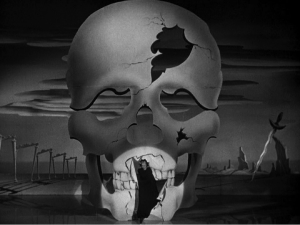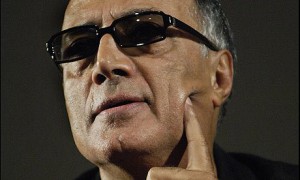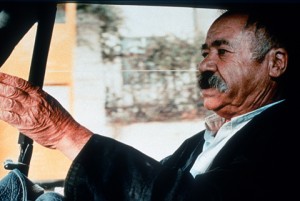SUSPENSE on Ice
Written for Lola no. 7, posted in November 2016. — J.R.
Suspense on Ice
An ice-skating noir musical? More or less, with Belita serving as Monogram’s answer to Sonja Henie, and a few A-picture production numbers (such as the Daliesque one glimpsed above, climaxing with the heroine diving through a wheel ringed by long, sharp daggers pointed towards the center). Not quite a two-dollar movie (the Warners Archive DVD is pricier), but an intriguing curiosity. Philip Yordan’s original script is so pro forma that one can almost imagine him writing it in his sleep, In its early stretches, it suggests a lazy rip-off of Gilda, with different sexual inflections (no homoerotic undertones, no heterosexual love-hatred, and this time the hero and villain are the same character, played by Barry Sullivan), Yet most of it was shot at the same time as Gilda, in late 1945.
Most curious of all is the almost total lack of motivation whereby Sullivan, a thuggish tramp, gets accorded a free white coat and shave by the owner of The Ice Parade so that he can sell peanuts to the customers, and then, after dreaming up the wheel-of-dagger stunt, which Belita accepts without hesitation, gets asked by her husband-boss (Albert Dekker) to take over his position when he leaves on a trip, allowing Sullivan more of a chance to romance his beloved spouse and star. Read more



